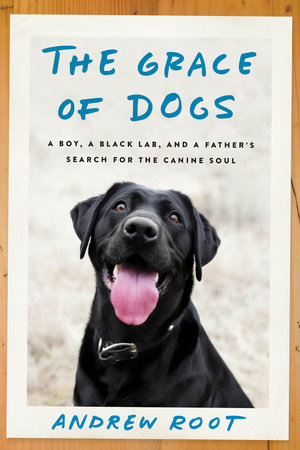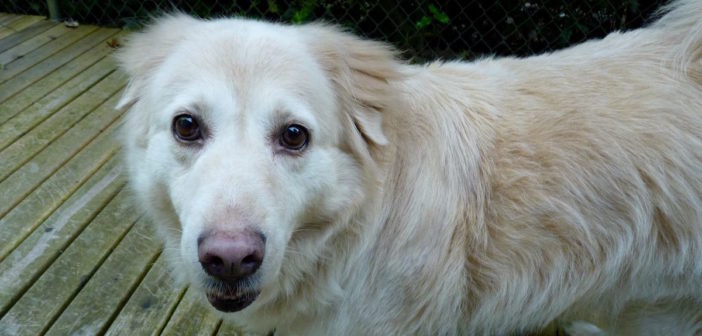When our dog died, our family grieved like we were losing a person. So woven into the fabric of our lives was Kirby that nothing felt right in the world when he was gone. This surprised me so much that it sent me on a kind of quest. What makes dogs so unique? So bonded to us? So integrated into our lives and identities?
 What kind of animals can so connect to people that they are used to care for the dying in hospitals, for school children who struggle to read, and for victims testifying against their abusers in court? In all these cases the presence of a dog has been shown to uphold the human spirit, reminding us that we are worthy of care and love. I’m not trying to disparage any other animals; I’m sure a cat or two could do this, and maybe a handful of horses, as well, but millions of dogs do! And studies done by Brian Hare at Duke University show that dogs (even puppies a few weeks old) are cognitively wired to connect with our face, responding to our emotions, as a way, I would add, of touching our spirits. This connection is crazy and deep.
What kind of animals can so connect to people that they are used to care for the dying in hospitals, for school children who struggle to read, and for victims testifying against their abusers in court? In all these cases the presence of a dog has been shown to uphold the human spirit, reminding us that we are worthy of care and love. I’m not trying to disparage any other animals; I’m sure a cat or two could do this, and maybe a handful of horses, as well, but millions of dogs do! And studies done by Brian Hare at Duke University show that dogs (even puppies a few weeks old) are cognitively wired to connect with our face, responding to our emotions, as a way, I would add, of touching our spirits. This connection is crazy and deep.
If we can somehow get under their familiarity and really look at dogs, we should be amazed. Stepping outside the ordinary, and looking at them again, you’d almost assume that they were creatures from a science fiction series. Here we have these beasts, some with floppy ears that, like no other animals, respond to our minds, understand many of our words, and grasp almost all of our core emotions. Our dogs can read when we’re sad and are willing to care for us; they know when we’re excited and are happy to be part of it. Dogs’ attention to the human face mediates compassion, kindness, and feelings of ease. Some theorists have shown that dogs communicate better with humans than they do with other dogs, often wanting to play and be with us more than with other canines.
So the question is, how did this come to be? How did dogs get to be this way? How did we get to be this way with our dogs? Was it accidental? Was the impact of our own unique consciousness (our strange ability to think about thinking) the environmental pressure that forged some wolf brains thousands of years ago to respond to us? This would be amazing. Is it possible that our consciousness is so open to otherness that as wolves got close to our minds, their minds too were transformed, becoming the kind of wingman that cares about our feelings and loves us? Or might dogs be a gift from God, designed just for us, here to remind us, as an echo from the natural world, that we are worthy of love, celebration, and joy? In my new book, I journey to find out how dogs and humans came to mean what we do to each other and how we are transformed by our connection.
Featured image: Puddles, who passed away in July 2015 in the care of Kim Bartlett and Wolf Gordon Clifton, after outliving her former guardian Jayne Gordon, Kim’s sister and Wolf’s aunt. Courtesy Kim Bartlett – Animal People, Inc.





